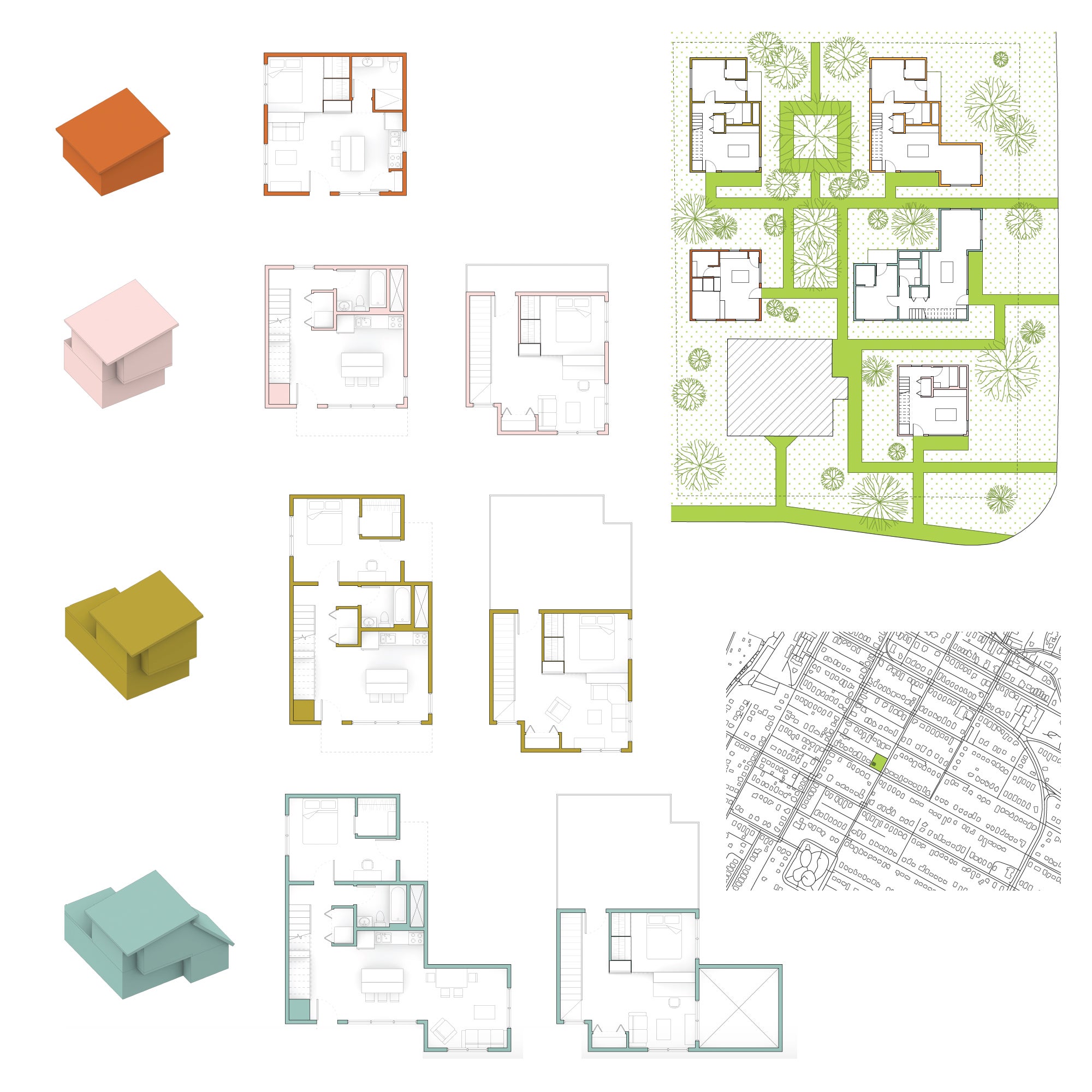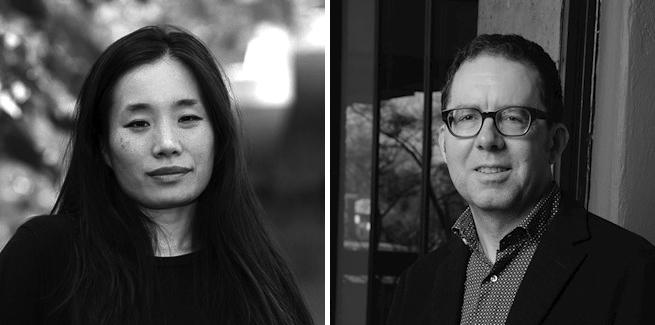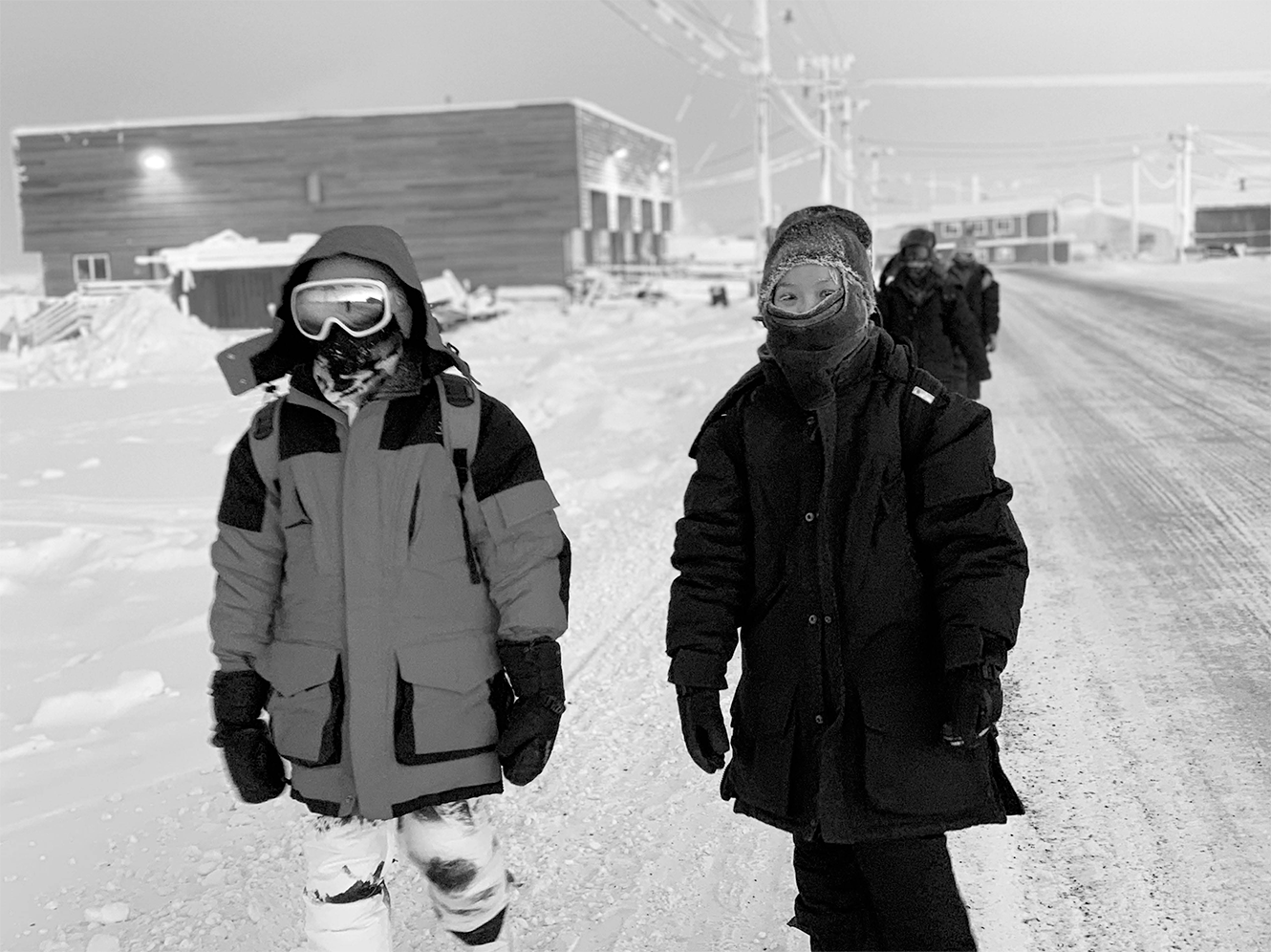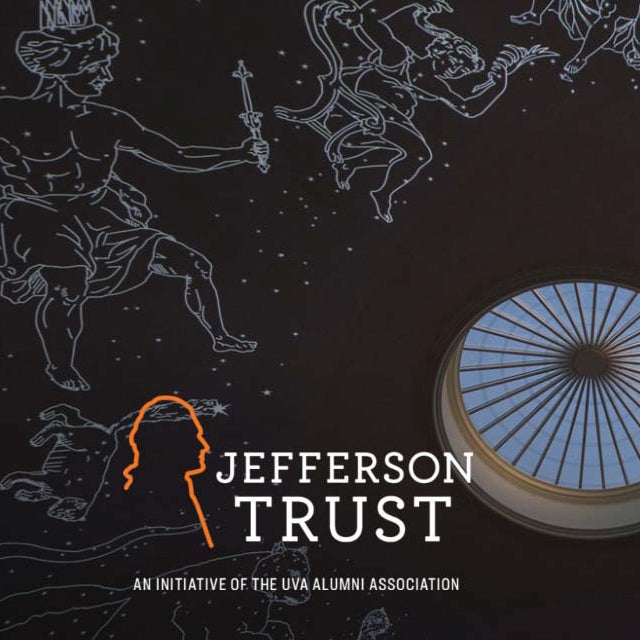
Leena Cho and Michael Lee are Recognized for Their Teaching Excellence

The School of Architecture is pleased to announce that two of its faculty, Leena Cho and Michael Lee were recently honored by the Council of Educators in Landscape Architecture (CELA) in recognition of their teaching excellence. Leena Cho, Associate Professor and Graduate Program Director of Landscape Architecture is the recipient of the Excellence in Design Studio Teaching (Senior) Award and Michael Lee, the Reuben M. Rainey Associate Professor of Landscape Architecture, was bestowed the Excellence in Teaching (Senior) Award. Cho and Lee are two of thirteen faculty and student awardees named by CELA for their contributions to teaching, research, creativity, and design innovation.
“Everyone in the School of Architecture knows of Leena and Michael’s commitment to teaching,” said Brad Cantrell, Chair and Professor of Landscape Architecture. “Their courses are always in demand and students are always excited about the content and experiences they provide.” The talented professors provide instruction in both foundation- and advanced-level courses and play a pivotal role for graduate landscape architecture students seeking their MLA degree.
In addition to serving as coordinator and instructor for the first-semester studio (LAR 6010) for the past seven years, Cho has taught a fourth-semester studio (LAR 7020) and advanced research studios—many of which are focused on the Arctic and co-taught with Associate Professor Matthew Jull. Cho is well-known at UVA for her work with the Arctic Design Group (ADG), which she co-founded and co-directs with Jull. Arctic landscapes, such as the northernmost US city of Utqiaġvik, Alaska have been ADG’s geographical focus for climate inquiry and the site of fieldwork that has informed much of Cho’s pedagogy, as detailed in her 2022 essay, “Climate Inquiries from Arctic Fieldwork.”

A recent MLA alum said of ADG, “The studio had us exploring climate change in Alaska and required us to not only learn new landscapes, design tools, and technologies, but also to work in interdisciplinary teams. [Leena] helped us engage with the content and local community in ways that led to design discoveries, and allowed both architecture and landscape architecture students to contribute meaningfully. With her guidance, we won an American Society of Landscape Architects (ASLA) honor award for our work in this studio.”
Cho’s teaching and studio course development have received wide-ranging recognitions, including 12 design and design research awards that her students have received at the UVA, regional, national, and international levels as well as 9 design thesis grants and thesis awards. Notably, ADG has garnered considerable funding over the years for studio travel to far-flung northern landscapes, including the $106K Cho and Jull secured for their three co-taught advanced research studios in Svalbard, Norway and Alaska.
…
UVA graduate landscape architecture students are treated to a first-year primer in the history of landscape architecture with Michael Lee, whose two-semester course sequence spans antiquity to the late 20th century. Lee also teaches advanced research seminars that engage themes ranging from technology and infrastructure to narrative and authenticity. A few of Lee’s trusted pedagogical strategies include comparative analysis of historical and contemporary sites, student-led discussions, responsive writing to primary sources, and site visits.

Inspired by film studies and digital humanities tools like ArcGIS StoryMaps, Lee draws from a range of disciplines to help students better understand a particular place or theme in-depth. For example, the incorporation of feature films is a major component of Lee’s seminar called “Greater Berlin,” which is co-taught with Cantrell. Students use still shots, short clips, and a series of prompts from Berlin-based films like Wim Wenders’ Wings of Desire (1987) to learn how a film can manifest the complex layers of the city.
“The undisputed highlight of my graduate career was the Berlin research studio I took with Michael,” acknowledged a recent alum. “Michael's strengths as a lecturer and researcher were complemented by his skill as a studio instructor and design critic. His personal experience living and researching in Berlin, along with his familiar inexhaustible font of relevant historic landscapes, designers, and German-language films enriched our individual curiosities and discoveries within this historically layered city. I cannot overstate the extent to which this course helped to tie together diverse aspects of my graduate education, deepened my curiosity towards the innumerable stories embedded in places, and shaped how I aspire to work as a designer.”
As part of the nomination and selection process for the 2024 CELA teaching awards faculty are required to provide a teaching statement. Excerpts from Cho’s and Lee's statements provide a look into their unique pedagogical approaches and the values they aim to instill in their students:
My approach to design studio teaching emphasizes processes of discovery, collaboration, and experimentation. Design response of students is also important, not just the process, as a means of synthesis and commitment to landscape thought. As a teacher, I am ultimately most satisfied when my students are doing well on both professional and personal levels. Over the last twelve years at UVA, my students and colleagues have also taught me the incredible values of centering joy, trust and open-mindedness in cultivating a vibrant and creative intellectual environment. Through this I have come to believe that teaching and learning are most meaningful and effective when it is personal, purposeful, and reciprocated, and especially when my students and I can communicate to each other—as human to human—the meanings behind what we do and what we hope to do as creative practitioners, critical thinkers and advocates.
~Leena Cho
Since joining the University of Virginia in 2012, I have viewed my chief responsibility as bridging the study of historical landscapes with the contemporary and future-oriented concerns of the studio. I have endeavored to show incoming students the centrality and ongoing significance of history within their chosen discipline, and to equip them with research skills that will inform their development as thoughtful designers engaged with the complexities of place and culture. I craft my teaching toward these aims through a combination of lectures, student-led discussions, and assignments that model how to situate landscapes within their layered contexts and relevant frameworks.
~Michael Lee
The 2024 CELA Award winners will be honored on March 22nd during the Annual CELA Conference Taking Action: Making Change held in St. Louis, Missouri.
The School of Architecture congratulates Leena Cho and Michael Lee on these well-deserved awards!


